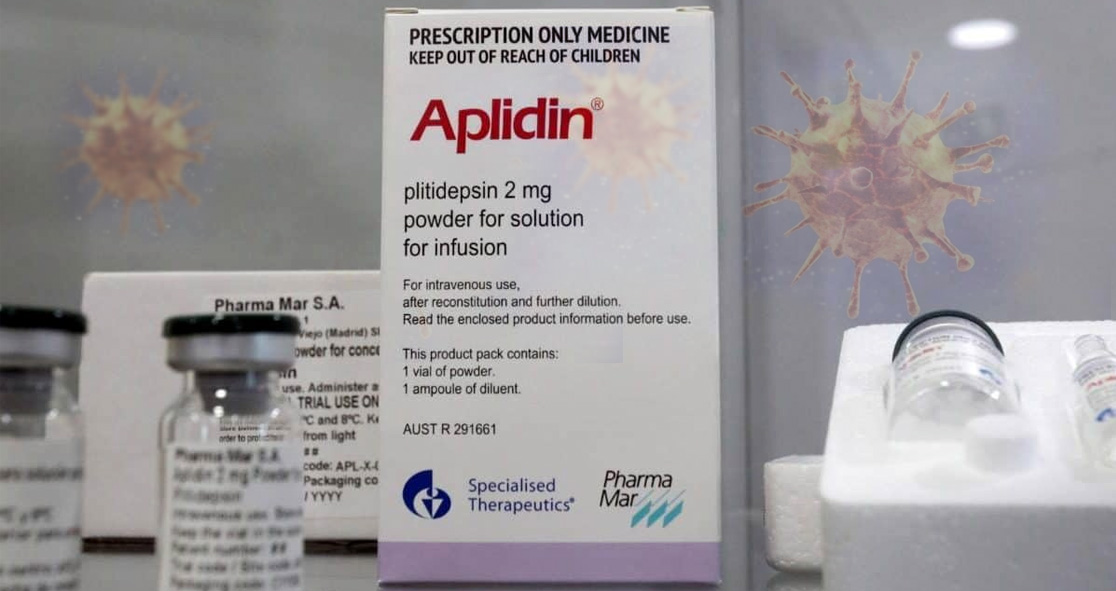A preclinical study, published online Monday in Science, has found that plitidepsin (Aplidin), an antiviral agent, can block the proliferation of the novel coronavirus in different cell lines and the lungs of mice.
In the in-vitro study, the antiviral activity of Aplidin was found to be nearly 28-fold stronger than that of remdesivir (Veklury) against the virus.
The study researchers noted that if cleared for use, Aplidin and Veklury could offer an additive effect when given together.
Senior study author Dr. Adolfo Garcia-Sastre told Medscape Medical News, “The potency of the inhibitor is quite amazing.”
Aplidin could also be given as a prophylactic because it reduced viral replication in the lungs of mice.
The drug is known to work by inhibiting a protein in the host, not the virus.
The authors wrote, “The preclinical efficacy shown in this study and in a phase 1/2 clinical trial from the manufacturer suggests that plitidepsin should be strongly considered for expanded clinical trials for the treatment of COVID-19.”
Still, it is early days, they cautioned. “We have found a potent inhibitor of SARS-CoV-2 replication, but clinical trials are still needed to find whether it provides a benefit to patients,” Dr. Garcia-Sastre added.
Lead author Dr. Kris White said since plitidepsin is an antiviral agent, “it inhibits the replication of the virus and needs to be given during the active replication phase of COVID-19. Similar to remdesivir and all other antiviral drugs, the sooner it is given to you, the better chance it has of being effective.”
The authors pointed out that there are limited therapies for COVID-19, which include oxygen supplementation, mechanical ventilation, remdesivir, and dexamethasone (steroid).
They said, “Remdesivir, in particular, has shown limited efficacy and dexamethasone is a steroid that does not directly inhibit viral replication. This leaves a continued need for the development or repurposing of antiviral drugs for the treatment of COVID-19.”
Dr. Garcia-Sastre and the team showed a significant reduction in viral titers of the virus in the lungs of mice treated with Aplidin compared with others treated with a placebo.
The investigators wrote, “These experiments show that plitidepsin treatment can reduce the replication of SARS-CoV-2 by 2 orders of magnitude and reduce lung inflammation in vivo and has significant potential for clinical efficacy for the treatment of COVID-19.”
“We would like to study the antiviral activity against other viruses in vitro and in animal models, while we hope our results will accelerate the execution of phase 3 clinical trial,” Dr. Garcia-Sastre added. The article originally appeared on Medscape Medical News.























